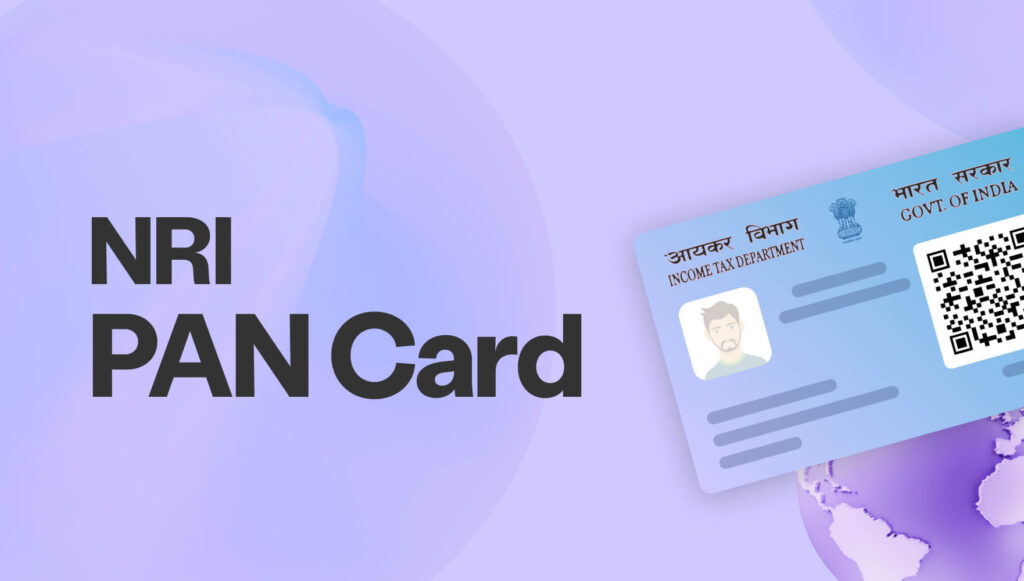
As a Chartered Accountant, one of the most common queries I receive from Non-Resident Indians (NRIs) revolves around the Permanent Account Number (PAN). While PAN is a well-known term among resident Indians, its implications, necessity, and application process for NRIs often lead to confusion. This blog aims to clarify the importance of PAN for NRIs, situations where it’s mandatory, and how to obtain it—along with practical insights from a CA’s desk.
What is a PAN?
A Permanent Account Number (PAN) is a 10-digit alphanumeric identifier issued by the Income Tax Department of India. It serves as a universal identification key for tracking financial transactions, tax filings, and various regulatory requirements.
Do NRIs Need a PAN?
The answer is: Yes, in specific circumstances. While not every NRI is required to hold a PAN, it becomes mandatory in several scenarios. Here are the key situations where an NRI must apply for one:
Taxable Income in India
If you are an NRI and have income in India that exceeds the basic exemption limit (₹2.5 lakh for individuals below 60 years), you are required to file an income tax return (ITR). To file ITR, a PAN is mandatory.
Investments in India
Planning to invest in Indian mutual funds, stocks, or real estate? You will need a PAN to:
- Open a Demat account
- Buy/sell shares on Indian stock exchanges
- Invest in mutual funds through AMCs
- Purchase immovable property
Banking and Financial Transactions
While NRIs often maintain NRE/NRO accounts, PAN is required for:
- Opening an NRO account (as NRE accounts may not always require it)
- Making fixed deposits over ₹50,000
- Transactions over ₹2.5 lakh in a financial year
- High-value foreign remittances under the LRS (Liberalised Remittance Scheme)
Property Transactions
If you’re buying or selling property in India, a PAN is essential for both parties. It is also required for TDS deduction and reporting under Form 26QB.
How Can NRIs Apply for PAN?
As a CA, here’s the streamlined advice I offer to NRIs:
Choose the Right Form
- Use Form 49AA (for individuals not being Indian citizens).
- Indian citizens living abroad can use Form 49A.
Apply Online or Through Authorized Agents
PAN applications can be made via:
Provide Required Documents
As an NRI, you’ll need to submit:
- Proof of Identity: Passport, OCI/PIO card
- Proof of Address: Overseas address proof (bank statement, utility bill)
- Photograph and Signature
Track and Receive PAN
PAN is usually issued within 15–20 working days. You’ll receive a digital e-PAN, and physical delivery can be requested overseas for an extra fee.
Common Mistakes NRIs Should Avoid
Using Form 49A when 49AA is applicable Ignoring tax liability on Indian income.
Not linking PAN with Aadhaar (though currently optional for NRIs)
Failing to quote PAN in property or investment-related transactions
Key Takeaways from a CA’s Lens
- PAN is not just a tax compliance document—it’s a financial identity in India.
- NRIs should plan ahead and obtain PAN proactively if they foresee any income, investment, or property dealings in India.
- PAN also simplifies TDS claims and refunds, making it easier to optimize your tax obligations.
- A Chartered Accountant can help avoid compliance lapses, ensure proper filing, and guide you on DTAA (Double Taxation Avoidance Agreements) to reduce tax burdens.
Final Thoughts
As global mobility increases, NRIs often maintain ties with India through investments, inheritances, and business ventures. Having a PAN ensures seamless financial management and regulatory compliance. If you are an NRI and unsure about whether you need a PAN—or how to go about getting one—it’s best to consult a Chartered Accountant for personalized advice.
Need help applying for a PAN or filing your tax returns as an NRI? Reach out for professional consultation tailored to your country of residence and income profile.
